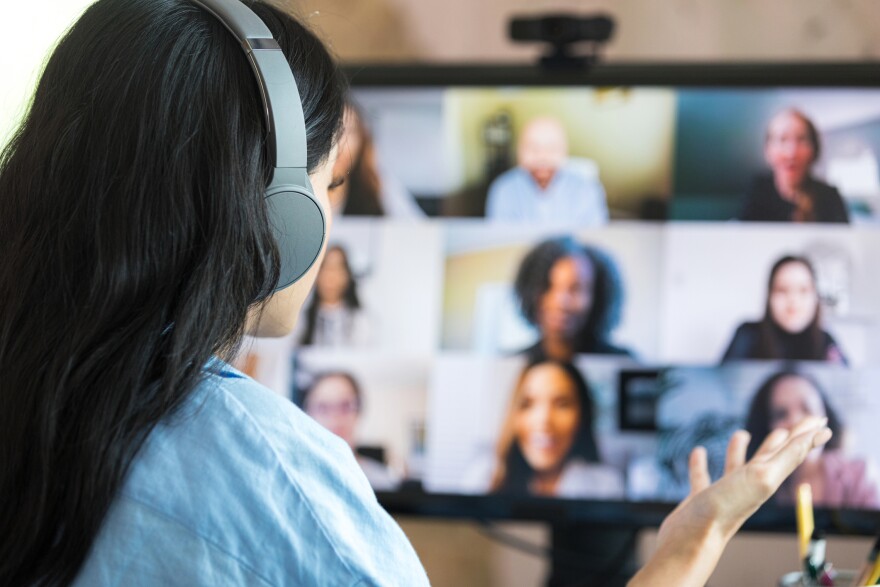The study, performed at an Austrian University, sought to determine whether videoconferencing led to fatigue on a brain level.
It defined that fatigue as “somatic and cognitive exhaustion that is caused by the intensive and/or inappropriate use of videoconferencing tools.” Videoconferencing tools include platforms like Zoom, Teams, and Webex.
The study measured the brain and heart function of 35 students experiencing the same 55 minute engineering lecture. Half of the students attended the lecture via videoconference and half attended in-person. A week later the students switched and attended another lecture: the Zoom group met face-to-face and vice versa. All of the students were monitored using electroencephalogram (eeg) and electrocardiogram (ecg).
What did they find?
The zoom group struggled to pay attention and grew increasingly fatigued over the course of the session. This was confirmed by their EEGs, which noted changes in brain waves that indicate reduced alertness. There were also notable differences in heart rhythm measurements, and the groups’ moods varied, too. The in-person participants reported they felt happier and livelier. The Zoomers said they felt drowsy and even “fed up.”

These results, combined with the results of other studies that indicate reliance on videoconferencing can reduce creativity and even contribute to depression and burnout, have led researchers on this study to conclude that videoconferencing should be considered as a possible complement to face-to-face interaction, but not as a substitute.
Copyright 2023 Texas Public Radio. To see more, visit Texas Public Radio. 9(MDA4OTAxNzAzMDEzMjc0MTc2MzA5ZDZlMw004))









